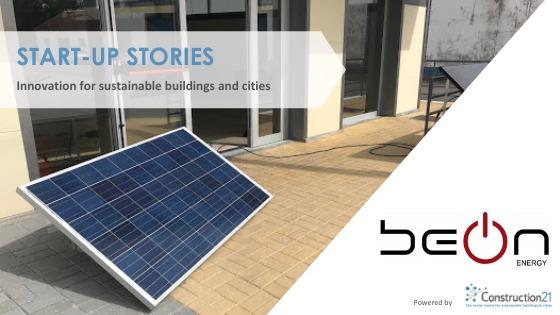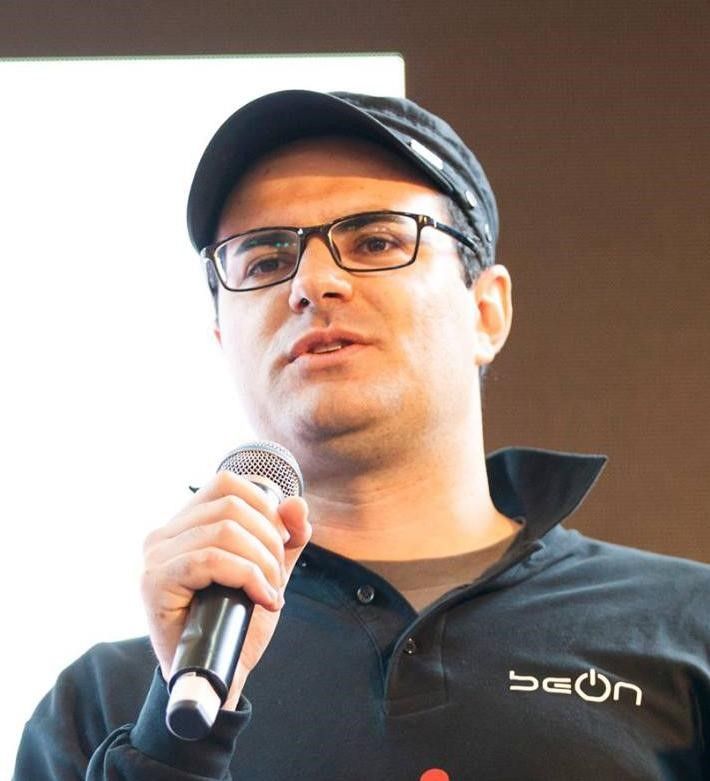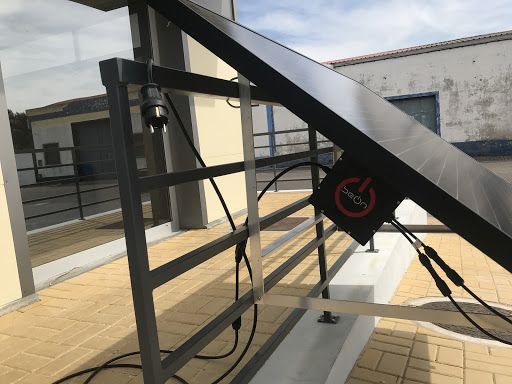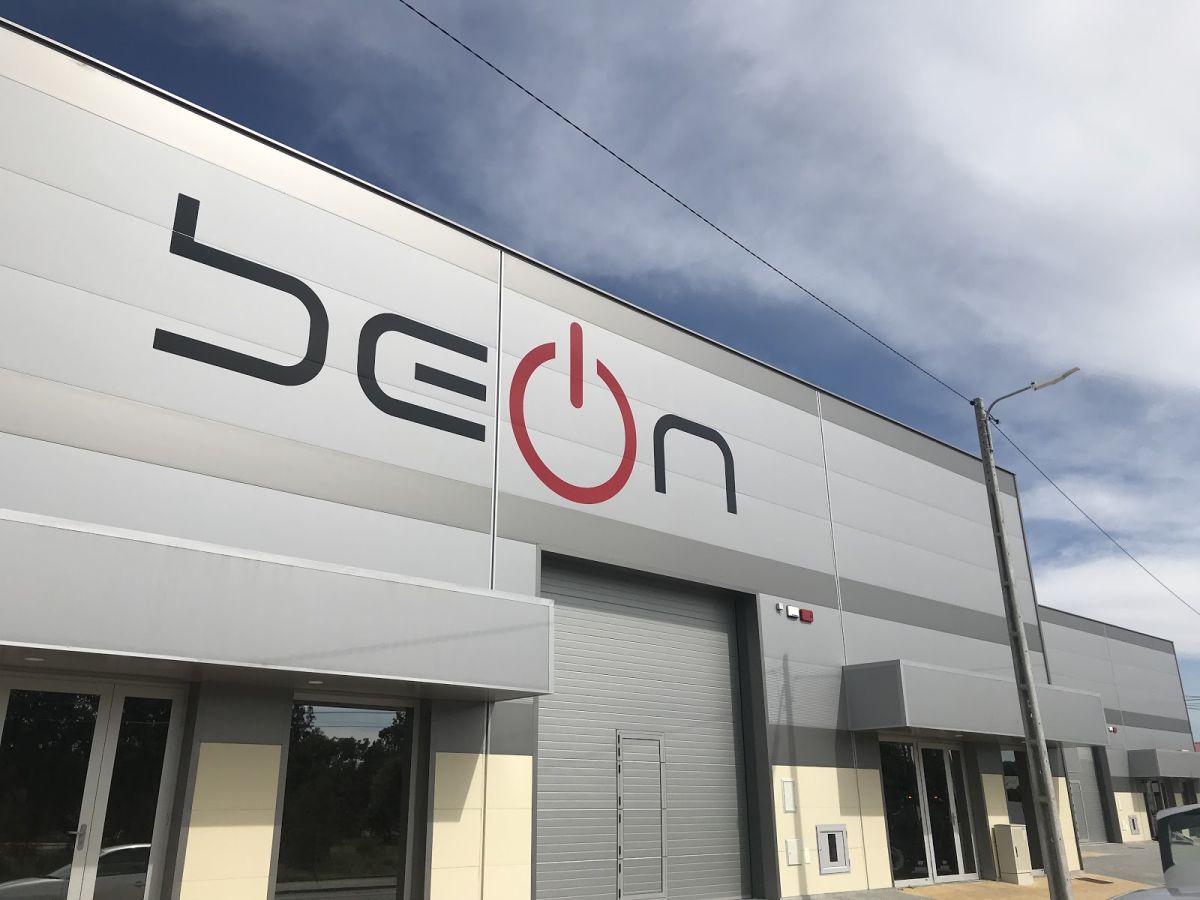BeOn : democratizing solar energy with the first plugin solar inverter

Self-consumption is increasingly seen as an important alternative for the ecological transition. However, it faces material and financial barriers that limit its massive adoption by individual households. BeON Energy has developed an innovative solution that makes the installation of a solar panel as easy as installing a TV. Construction21 met with its CEO and co-founder Rui Rod, as well as Jamie Scott, Director of Business Development.
What is BeON Energy and how did you develop your solution ?
BeON Energy has developed the first plug-in solar micro-inverter. This allows you to connect a solar panel to your home power socket.  Anyone can do it, it's as simple as connecting a TV.
Anyone can do it, it's as simple as connecting a TV.
Having worked in solar energy for 10 years, I understood that when it comes to solar home systems, the vast majority of the difficulties and costs were related to this last step of connecting the system to the home. We respond to this blocking point with a simple idea: "by connecting the power generation device directly to a socket, we save time and money and facilitate the adoption of the system".
Rui Rod, CEO & co-founder of BeON Energy
Why adopt BeOn for prosuming ?
First of all, it is an affordable solution for everyone and easy to install. The customer receives a ready-to-use kit consisting of a solar panel, micro-inverter, cables and necessary accessories. Simply plug the panel into a wall socket! It is possible to start with a single panel and add more panels as you go along. For a four-person home, four kits will be required. The price of a kit is the same as that of any other household appliance, so if you can own a refrigerator, you can own a solar panel kit.
Once the system is installed, wall outlets, instead of distributing energy, become receivers that can power the home. It is an innovative solution that allows our customers to achieve significant energy savings. The system pays for itself with the savings realized. In addition, there are no installation costs, since BeOn does not need to be connected to an electrical panel, the time dedicated to wiring decreases from 4 hours to 15 minutes. This is our main innovation: a low-cost solution with a high quality system.
Finally, in the longer term, by producing the energy they consume themselves, our customers become more aware of their energy consumption. We can see that they are beginning to change their habits. These can be simple gestures, such as turning off the light when leaving a room. This is one of the benefits of self-consumption.
How does your solution contributes to making our societies more sustainable ?
BeOn is a solar solution for people who think solar is not for them. In cities, people don’t have access to their roofs, or they have small rental spaces. Solar has not been an option for them up to now. They had to have capital to get into the market, and nobody would have come to install just a single solar panel on a balcony for exemple. Now, with our solution, we can use any space available : balconies, flat roofs, car parks etc. Solar can be anywhere around the home, and you don’t have the constraint of installation.
BeON is a good way to accelerate the mass adoption of domestic renewable energy generation. The aim of the EU is democratizing renewable energy, and we have the solution to answer this call. We are offering an alternative to other renewable solutions (windmills, solar farms…) which are highly subsidized and require a lot of investment. With BeOn people can engage themselves in the energy transition very easily. It is not about getting complete energy independence, but more about contribution to the transition in one’s own way. And if you multiply this, it could have great effects.

What is your business model and who are you clients ?
We have requests from different sources, but our main business channel is through our cooperation with energy utilities around the world. For example, we work with EDP, the largest utility in Portugal. We sell them our kits and they are the ones who sell them to their customers. We also provide access to a platform to simplify maintenance operations.
It is counter-intuitive to say that electrical companies help people reducing their electric consumption, but it is the case. Electric utilities are engaged into making people aware of their consumption and they try to create a link with their customers. This is the reason why we chose to work with them.
Building constructors are among our targets. It is possible to install our system directly in new buildings. This is a good way to make a building smart.

Does you solution include a storage facility ?
We started including storage in our solution, yes. But not, batteries. I don’t really believe in batteries, they are costly, and unreliable. It is an investment that doesn’t pay for itself, and it will then be financially more interesting for the consumer connect to the grid than using solar panels.
This year, we are launching another, more efficient storage solution. We use water heaters and underfloor heating to store excess energy by automatically lighting them.
You have today 20 employees in 3 countries, what are your perspectives for further developments ?
Today, we are cooperating with 15 utilities around the world, and have installed more than 100 000 solar kits in Portugal and other countries. For us, it is a great success : it shows that people want to have a small contribution to the transition.
Our next step will be developing our solution in other EU countries, as we do see that people are willing to do something about the energy transition. We are already present in France, where we notice that there is a real interest for our service. We are also in Germany, where there is also a big demand.
The EU recommends that each country should facilitate the installation of renewable energy production systems. Our solution makes it possible to respond to this call from the EU by democratizing access to renewable energies.
The main challenge we will have to face is building regulations. In Portugal, things are quite simple. You can install up to 6 solar panels without having to ask for a permit. All you have to do is inform the regulator. However, some countries have heavier legislation. I consider them to be late and, in a sense, contrary to European directives.
Interview by Alice Dupuy, Construction21 production



